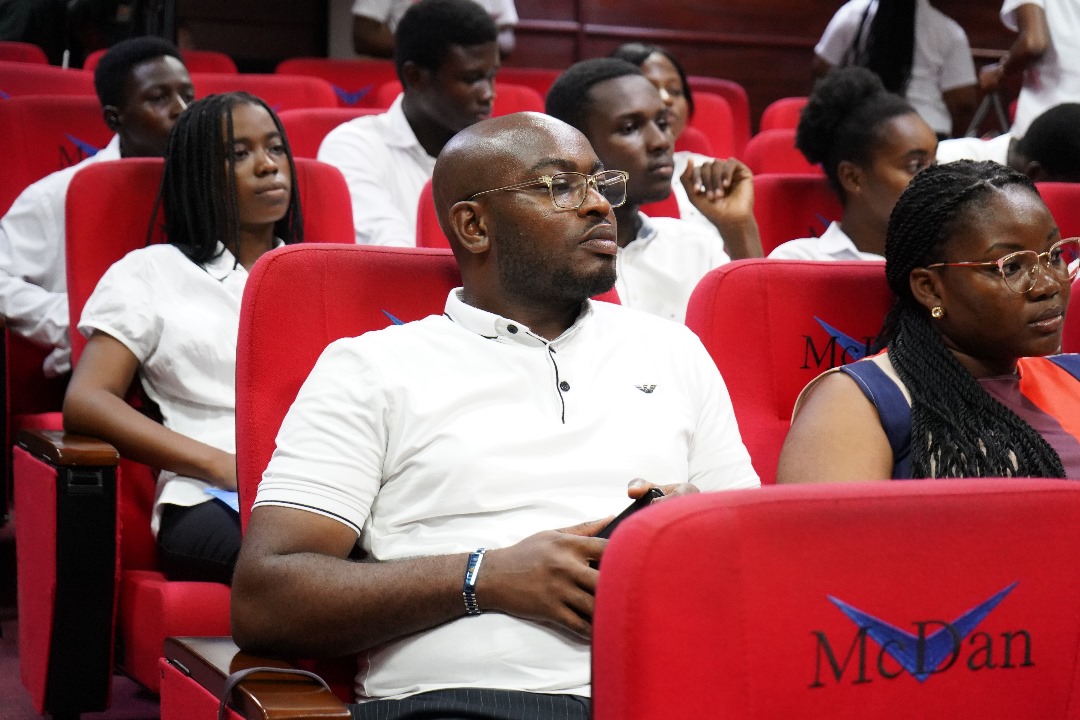- by Jessel
- October 30, 2023
Click the link below to join Our WhatsApp group for daily brief on current trends in the country.
Join Here!
Loading

Research has shown that young people who are supported to participate in decision-making are more likely to have increased confidence and self-belief, positive career choices, enhanced individual development among others. In Ghana, the significance of youth participation in democracy cannot be stressed enough. Democracy flourishes when it is deeply rooted in the hearts and minds of its citizens. As Ghana progresses on its democratic path, the active engagement of young people is essential for sustainable development. The youth are the future of the nation, and their involvement in the democratic process goes beyond just voting.
Data from the Ghana Statistical Service shows that Ghana has a youthful population, with individuals aged 18 to 35 making up over 58% of the total populace. Their energy, creativity, and fresh perspectives are invaluable assets in shaping the nation’s destiny. However, despite their numerical strength, youth influence on national politics remains limited.
While some young individuals are being elected or appointed to political positions, there is still a need for more inclusive opportunities for youth participation. An inclusive governance system that caters to all groups, particularly the vast majority of young people in Ghana’s population, is crucial and should not be limited to partisan political involvement.
The promotion of youth participation in Ghana’s democratic process is vital for the advancement of the country’s democratic principles and values. Young people must actively participate in political decision-making processes to ensure a more inclusive and representative democracy. Therefore, there is an urgent need for a coordinated effort to enhance youth participation in Ghana’s democratic process.
To achieve this objective, government institutions, civil society organizations, and other stakeholders must collaborate and implement targeted initiatives that specifically focus on engaging young people in the democratic process. This may include establishing youth-focused political education programs, creating youth advisory councils, and developing platforms for young individuals to voice their opinions and concerns.
Recently, The Africa Center for Democracy and Socioeconomic Development (CDS Africa) organized a forum with the theme “Deepening Youth Participation in the Democratic Process,” featuring distinguished speakers. At the forum, Dr. Emmanuel Akwetey, Executive Director of the Institute for Democratic Governance (IDEG), urged Ghanaian youth to move beyond mere voting and rather critically analyze public policies to demand accountability and work towards a better future. Kathleen Addy, Chairperson of the National Commission for Civic Education (NCCE), emphasized the importance of unity and voting for the common good, rather than being influenced by money, ethnicity, or religion. On his part, Prof. Alidu Seidu stressed the significance of citizens asserting their rights and taking action when they are violated.
CDS Africa (an independent think tank) should be commended for promoting youth democracy through platforms such as these. Empowering young individuals to actively engage in shaping the future of their nation is crucial for sustainable development and progress.
Building on the initiatives of CDS Africa, RGG News urges all stakeholders to intensify efforts to address the obstacles hindering youth participation in the democratic process, such as limited access to information, restricted opportunities for political engagement, and social and cultural norms that discourage youth involvement in politics. By tackling these challenges and creating a conducive environment for youth engagement, Ghana can ensure that young people play an active role in shaping the future of their nation.
Furthermore, we call upon the government to develop district-specific youth policies or adapt national youth policies to local contexts. These policies should align with the aspirations, culture, and perspectives of young people in their respective communities.
We firmly believe that enhancing youth participation in Ghana’s democratic process is not only a moral obligation but also a strategic imperative for the country’s long-term stability and prosperity. It also contributes to a more transparent and accountable understanding of decision-making processes. Time is nigh for all stakeholders to unite and take decisive action to empower young individuals to become active and informed citizens who can make meaningful contributions to the democratic governance of Ghana.


Click the link below to join Our WhatsApp group for daily brief on current trends in the country.
Join Here!
0 Comments: